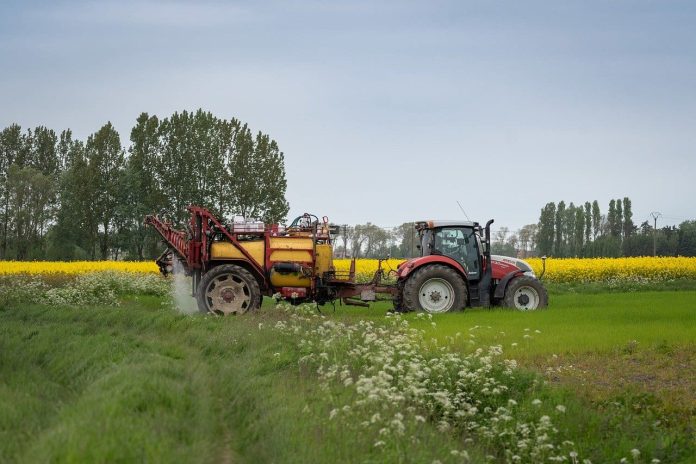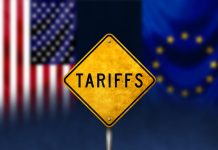After pressing pause on weeks of disruption for negotiations with the federal government, Farmers’ Association President Joachim Rukwied cautioned on 18 January that the recent protests in Germany were merely “a foreshock,” ominously adding that “if nothing changes, an eruption will follow.” Unphased by this warning, Berlin decided to stick to its guns over planned farmer subsidy cuts later that day, making the promised Act 2 all but certain.
Hardly limited to Germany, a wave of farmer protests has emerged across the EU in January, from France to Romania by way of Poland, with French farming union (FNSEA) director Arnaud Rousseau positing that, while contextually distinct, “these movements all share the same root cause: the growing gap between the reality of farmers’ practices on the ground and the administrative decisions centralised in Brussels.”
With the European Commission’s much-touted ‘Strategic Dialogue’ with the bloc’s food system actors set to launch on 25 January, Brussels’s decision-makers must use the short pre-election window to heed their farmers’ call and deliver urgent support.
Explosion of discontent leaves governments scrambling
Germany’s farmer protests have notably received the FNSEA’s backing in January, Fuel remains at the heart of both country’s agricultural discontent; namely, a phase out of fuel tax exemptions in Germany and a tractor fuel tax in France. In recent days, French farmers in the southwest have blocked highways linking Toulouse to the Atlantic coast in a potential opening act for nation-wide protests, citing not only taxes but also excessive bureaucracy and the French government’s failure to provide concrete support.
Keen to test their new Prime Minister, protesting farmers near Toulouse have affirmed that they “will not move until Gabriel Attal comes to see us.” These words have not fallen on deaf ears, as Attal and his agriculture minister, Marc Fesneau, met with Rousseau on 22 January amid President Macron’s rising concerns over the EU electoral implications. While Fesneau is pushing for streamlined legislative support for and sincere engagement with the sector, the coming days will reveal whether this approach will succeed in appeasing tensions.
Yet these protests also have a European dimension, with the sector growing increasingly exasperated by the EU’s out-of-touch Green Deal and competitivity-hindering trade policies. In Poland and Romania, farmers have initiated blockades of their respective borders with Ukraine in January to protest the influx of cheaper Ukrainian grain driving down local prices.
While Polish farmers have put demonstrations on hold after securing concessions from both their government and the EU to limit Ukrainian agri-food exports, this lifeline will need to be expanded to across the border region to quell the spreading unrest, as recently suggested by trade commissioner Valdis Dombrovskis.
Nutrition label: Farm to Fork’s polarising last stand?
Paired with the new ‘Strategic Dialogue’ – Von der Leyen’s attempt to “de-polarise” the food debate – Brussels’s ostensible shift to a more grounded, consensus-building approach is unfortunately threatened by the revival of the mandatory bloc-wide nutrition label discussion.
In January, the Belgian EU Council Presidency put the labelling file back on the agenda after a year of delays, announcing that it would hold a scientific symposium in April on the controversial Nutri-Score – a French labelling system equally adopted in Belgium and five other EU member-states. Like a range of “Farm to Fork” strategy policies, the nutrition label has encountered strong opposition over feared consumer and producer effects, prompting the Commission to postpone its proposal to make time for an adequate impact assessment.
In response to widespread criticism targeting Nutri-Score’s misleading and reductive assessment of nutritional value – well-summarised by the conclusions of Medical University of Warsaw researchers and the national competition authorities of Italy and Romania – Nutri-Score’s governance coalition launched the label’s new algorithm in January. Yet the updated Nutri-Score maintains its crude focus on fat, sodium and sugar content and failure to reward vital macronutrients – which explains how whole milk and French prunes have been demoted to the same ‘C’ score as Diet Coke – adding further economic pressures on Europe’s embattled farmers.
What’s more, even France’s National Agency for Food Safety (ANSES) has highlighted that Nutri-Score’s new algorithm “discriminates less between products based on their fiber content,” while failing to direct consumers towards products with “certain nutrients” insufficiently consumed by the population. Consequently, the Belgian Presidency should refrain from using its upcoming symposium to force though a labelling system that lacks broad political and scientific backing.
NGT regulation stoking further divisions
Yet the nutrition label is not the only divisive agri-food issue boiling over in Brussels, with the debate on new genomic techniques (NGTs), or gene editing, returning in January. Since the Commission’s July 2023 proposal to relax the bloc’s regulation of gene-edited plants – hailed by backers as a promising solution to boost agricultural sustainability and resilience – this file has polarised the EU Council and Parliament, with NGT labelling and patents emerging as the primary bones of contention.
On 11 January, farmer and consumer groups, joined by left-wing MEPs, gathered outside of the EU Parliament to protest against the Commission’s NGT proposal, with the organisers citing the ANSES’s recently-published opinion concluding that the proposed criteria for classifying gene-edited plants lacks a scientific basis. MEP Christophe Cleargeau has rightly asserted that “this high-level scientific opinion must lead to a re-evaluation” of the NGT debate.
However, centre-right MEP and NGT rapporteur Jessica Polfjärd is taking a different direction, notably by pushing to find a common position between the Parliament’s diverging factions ahead of the 24 January plenary vote, after stating that “there is a possibility here to move quickly…to finalise before the election.”
Considering the poorly-understood impacts on consumer health and farmers’ fair access to new plant varieties under an unclear patent regime, the Belgian Presidency should rethink its aim to “advance on” the NGT file “as soon as possible” and ensure the final regulation offers the bloc’s agri-food sector a scientifically-sound framework to bolster competitiveness, sustainability and food quality.
As EU leaders navigate these choppy waters, they must avoid falling into the trap of hasty, politically-expedient decisions-making presented by the nutrition labelling and NGT files. Looking ahead, if Brussels hopes to regain the trust of its politically-influential farmers ahead of the elections, it should ramp up collaboration with member-states – particularly those rocked by the recent protests – and provide the funding and technical support needed to relieve urgent pressures on time and at scale.




































